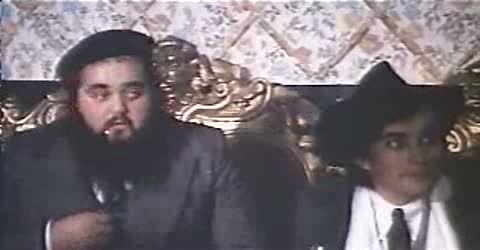Directed by:
Federico FelliniScreenplay:
Federico FelliniCinematography:
Giuseppe RotunnoComposer:
Nino RotaCast:
Peter Gonzales Falcon, Anna Magnani, Marne Maitland, Elisa Mainardi, Federico Fellini, Alberto Sordi, Cassandra Peterson, Dennis Christopher, Mimmo Poli (more)Plots(1)
One of the maestro Federico Fellini's greatest '70s works (between Satyricon and The Clowns and Amarcord), Roma erupts volcanically as a state-of-the-world pronouncement on what was not only happening within Rome at the tide of the hippies' organic birth and the post-Boom-set that made up his characters of the 1960s films, but also where, and how, his city would move feverishly forward into one of potential futures. As Fellini himself travels with his crew to document the ring-road circling Rome, with all the natural diversions that might inherently divert a traditional film shoot, we move into episodes that chart the wartime difficulties of Roman life across those fleeting times that chronicle love and life within the modern-day Rome-time, themselves pitted against the archaelogical vestiges of the great city, - and the Catholic church rears its dominance, and we come into a midpoint that positions itself, indeed, between the memory-cinema of Satyricon and Amarcord. One of the great and bountiful colour-spectacles of Fellini's cinema, almost leapt off toward from the moment of Giulietta of the Spirits, Fellini's Roma remains a passionate testament both to the city that finally claimed him as its son after he left small Rimini, and to the final stage of cinema that he himself would work till the day he died. (Eureka Entertainment)
(more)Reviews (3)
A film that is loosely adjacent to Amarcord, but really loosely "double underlined". Narratively gripped stories from a small town replace the chaotic world of the city. The young boy arrives in an Italian jungle full of life, lights and screaming, and along with the change of environment, Fellini's directorial style changes. Roma is a work on the edge between documentary and film and skillfully works with fast editing, layered dialogues and shattering of various scenes. In the cabinet of curiosities of the city, not only do the stories of many people intertwine, but also two time planes – the past (with Peter Gonzal Falcone as a young man, discovering the secrets of Rome) and the "present", in which the shooting of the film is directly emphasized (Fellini plays the main role). Fellini's talent for a pointed situation does not disappear in the clutter of voices and events (an absolutely ingenious church fashion show, the discovery of a well-preserved Roman villa in the city's underground). Roma is indeed a masterpiece, which on one level is a plastic representation of life in the mother of all cities, on the other a metaphor for the civilization that arose on its foundations. An extraordinary film for extraordinary moments... :o)
()
What should I have taken from Rome? Why do beautiful images, which will stay in my mind for a very long time (fading frescoes), alternate with long boring scenes for which I am unsuccessfully searching for the key (cabaret)? What do these disconnected scenes mean that have no relation to the idea that has so far led the narrative? Or is it really just a tribute to the beloved city? I tried, but perhaps it is not my place to penetrate these walls. Fellini, for me, still only means Amarcord.
()
Unexpectedly shallow and intellectually empty for Fellini’s standards. It may mean more to the Romans, but for me it managed to convey almost nothing in those two hours, and some scenes, like the "fashion show" in the presence of church dignitaries, made absolutely no sense in the context of the film as a whole (and this is the first time this has happened to me with Fellini). While I understand the purpose and admire the successful variable narrative style, it flew way over my head.
()

